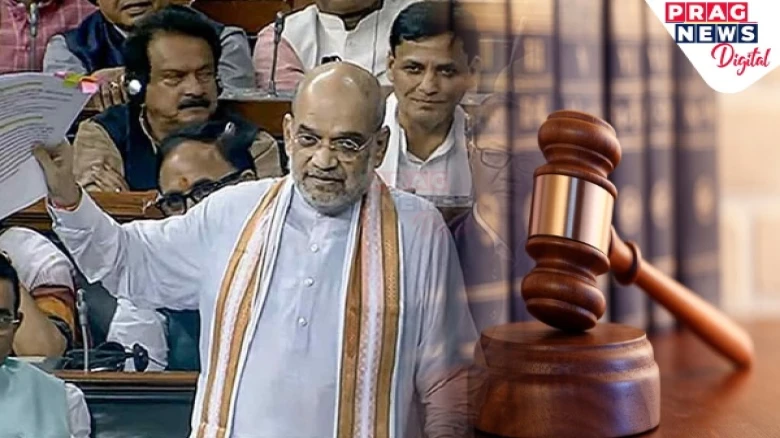Regional

For the first time, community service will be one of the penalties for minor violations and the...
Digital Desk: In a major and recent drive, the Central government submitted a bill on Friday to completely restructure the country's criminal laws, replacing the Indian Penal Code (IPC) of 1860, the Code of Criminal Procedure (CrPC) of 1973, and the Indian Evidence Act of 1872.
The IPC was drafted by the British in 1860 and has served as the foundation of the country's criminal justice system for almost 160 years.
The IPC of 1860 will be superseded by the Bharatiya Nyaya Sanhita of 2023.
The Bharatiya Nagarik Suraksha Sanhita, 2023, will replace the CrPC of 1973.
The Bharatiya Sakshya Bill, of 2023, will substitute for the Indian Evidence Act of 1872.
Union Home Minister Amit Shah submitted the measures in the Lok Sabha on Friday.
"From 1860 to 2023, the country's criminal justice system was governed by British laws." "The three laws will be replaced, and there will be a significant change in the country's criminal justice system," Shah added.
For the first time, community service will be one of the penalties for minor infractions. Fines and penalties for different violations have also been raised.
"Whoever, purposefully or knowingly, by words, either spoken or written, or by signs, or by visible representation, or by electronic communication, or by use of financial means, or otherwise, excites or attempts to excite, secession or armed rebellion or subversive activities, or encourages feelings of separatist activities, or endangers the sovereignty or unity and integrity of India; or indulges in or commits any such act shall be punished with imprisonment for life or with imprison," stated as per Section 150 of the Bharatiya Nyaya Sanhita.
Remarkably, the sedition statute was kept in the new bill that the British introduced against Indian rebellions fighting for the country's independence.
Leave A Comment